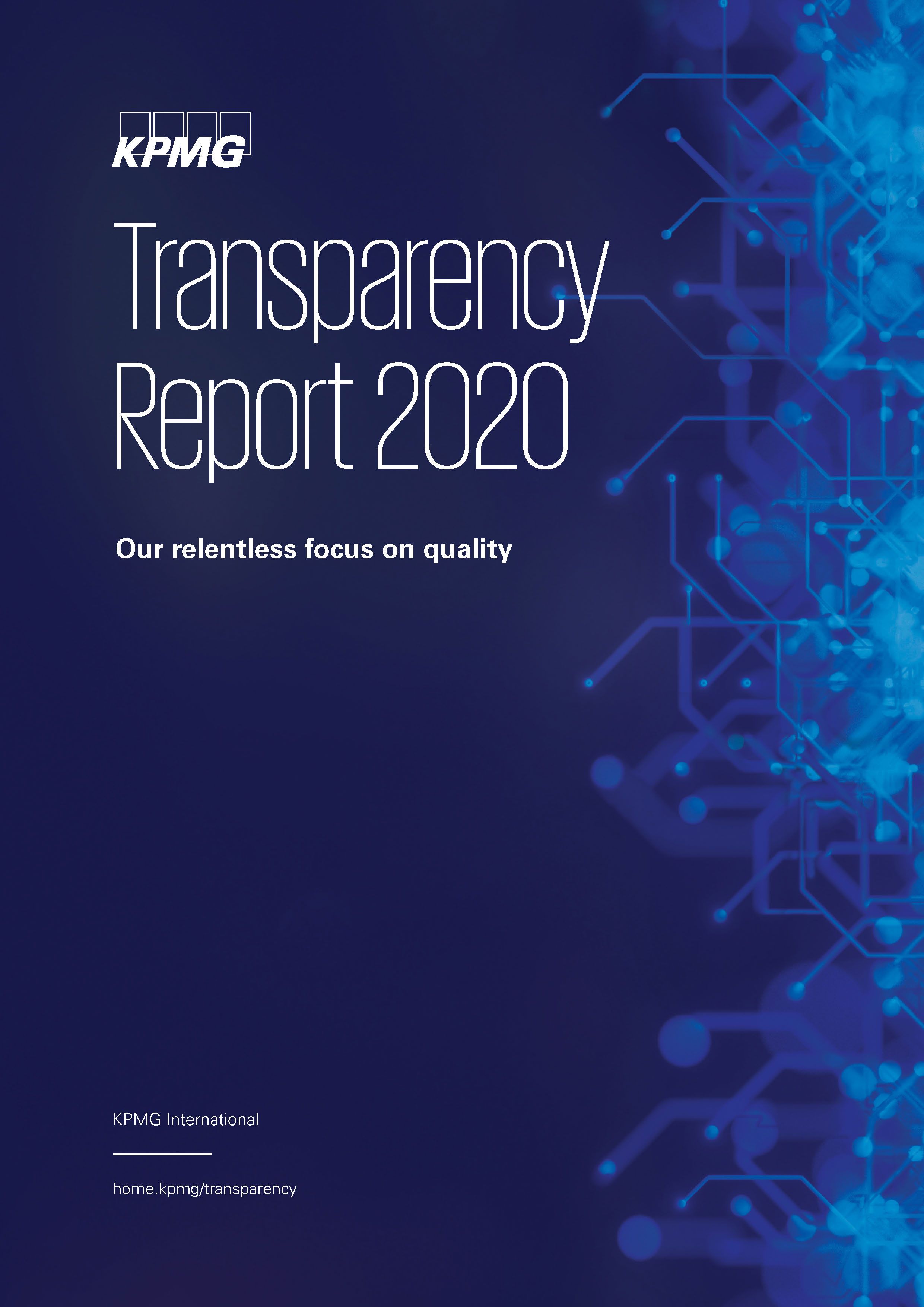Our commitments:
Act lawfully, ethically and in the public interest.
Work against corruption in all its forms, including extortion and bribery.
Our Purpose and Values guide us and continue to shape our business, informing our actions and defining the work we do every day. To inspire confidence and empower change, we need to consider the economic, environmental and social impact of our activities, align our financial and societal performance as part of a shift towards stakeholder capitalism, and ensure we have strong governance to oversee all our activities.
Our work with the World Economic Forum, setting the IBC metrics for ESG reporting, is one example of how we’re using our experience and knowledge to help shape the future of sustainable business. We are seeing this work as part of the wider role we believe we must play to get to harmonized, consistent and credible information on sustainability matters — both risks to and impacts by companies. We have been pleased to accept roles at the International Integrated Reporting Council (IIRC), FSB Taskforce on Climate-related Financial Disclosures (TCFD), Corporate Reporting Dialogue and Sustainability Accounting Standards Board (SASB), among others.
A highly experienced governance body
KPMG has a strong governance structure for overseeing our activities, setting policies and aligning our Strategy with our Purpose. KPMG International Limited acts as the coordinating entity for the overall benefit of the KPMG global organization. Its governance bodies are comprised of the Global Council, the Global Board, the Global Management Team (GMT) and Global Steering Groups.
The Global Board is the principal governance and oversight body of KPMG International, currently consisting of 24 members from diverse geographies that reflect KPMG’s global presence. The key responsibilities of the Global Board include approving strategy, protecting and enhancing the KPMG brand and reputation, overseeing the GMT and approving significant policies with which KPMG firms must comply. It also approves the admittance or termination of KPMG firms as members of our global organization. You can find out more about our Global Governance in our Global Transparency Report 2020.
The tenure of our Global Chairman & CEO is limited to two terms of 4 years, while our Regional Chairmen’s terms on the Global Board are limited to their term of office in their regional role. Tenure for our other Global Board members is 2 years, with members eligible to be appointed for one or more additional terms. All members of the Global Board are executive members; it has no independent members.
Consistent with KPMG’s global policies, all personnel, including Global Board members, are required to comply with detailed policies on conflicts of interest and auditor independence, as well as KPMG’s Global Code of Conduct, which includes specific additional responsibilities for leaders. Global Board members, like all our people, are prohibited from acting as the director or officer (including company secretary) of any non-KPMG entity except for: a not-for-profit that is not an audit or assurance client; an entity established for personal family reasons that is not a client; or an appointment made in the normal course of conducting restructuring engagements.
Global Board members have a broad range of economic and social competencies. Board members have either economic/finance-related degrees and/or accounting qualifications and all have experience in running national KPMG practices which entails consideration of economic, social and environmental issues. Many Global Board members are involved in senior roles with not-for-profit organizations in areas such as education, and inclusion and diversity, as well as in national and international professional bodies and business associations. Some Global Board members have experience entailing environmental competencies.
The Global Board receives regular updates and education on economic, environmental and social issues as part of its role in considering and approving KPMG International’s various significant projects in these areas, many of which have been outlined in this, Our Impact Plan.
There are three female Global Board members and five members of the Global Board that identify as members of underrepresented social groups.
Understanding the material issues relevant to our business and our stakeholders
KPMG has a diverse range of stakeholders, including our people, our clients, our local communities, governments, regulators, academia, the media and the capital markets. To understand what most concerns this group, we carried out extensive research in late 2019, surveying C-Suite, external stakeholders and the public in seven of our largest markets: Canada, China, France, Germany, Japan, UK and US. We also used employee engagement and employee trust data before and during the pandemic and took into consideration the shifting stakeholder and business priorities arising from global and societal issues — from COVID-19 and Black Lives Matter to the #MeToo movement.
These findings were augmented with significant business risks from our Enterprise Risk Management (ERM) framework, along with material issues identified by KPMG firms. The result is a list of 12 issues which are considered most material to both our stakeholders and our organization:
- Ethics, integrity and independence
- Relevant, quality services in the public interest
- Financial and brand resilience
- Information protection
- Transparency and accountability
- Talent attraction, development and retention
- Purpose, culture and values
- Inclusion, diversity and equal opportunity
- Health, well-being, workload and job security
- Technology and innovation
- Climate action
- Impactful community initiatives
KPMG International has an Enterprise Risk Management (ERM) program led by our GMT and overseen by the Global Board Quality, Risk Management and Reputation Committee. The program uses our proprietary Dynamic Risk Assessment (PDF 1.01 MB) methodology to identify, connect and visualize risks across four dimensions: likelihood, impact, velocity and connectivity. The pandemic has shown just how interconnected risks can be and how quickly they can escalate, so this enhanced approach to risk assessment has never been more relevant. It helps us better understand the risks we should focus on.
Every KPMG firm is required to identify and manage its risks, including those arising from the above issues — through a formal risk assessment process for which each KPMG firm’s leadership takes responsibility.

Our global client and engagement acceptance and continuance processes and policies help us identify and evaluate any potential risks, ethics or compliance issues prior to accepting or continuing a client relationship or performing a specific engagement. KPMG firms are required to evaluate whether to accept or continue a client relationship or perform a specific engagement. Where client or engagement acceptance or continuance decisions pose significant risks, additional approvals are required. You can read more in our Global Transparency Report 2020.
Setting the highest standards of ethical conduct
At KPMG, we know that trust is earned by doing the right thing. We’re committed to the highest standards of personal and professional behavior in everything we do. Ethics and integrity are core to who we are and everyone at KPMG is held to this promise of excellence. Being signatories to the UN Global Compact, we work against corruption in all its forms, including extortion and bribery.
Our Global Code of Conduct outlines the responsibilities all KPMG people have to each other, our clients and the public. It shows how our Purpose and Values inspire our greatest aspirations and guide all our behaviors and actions. It defines what it means to work at and be part of KPMG, as well as our individual and collective responsibilities.
In our Global Code of Conduct we clearly state that we don’t tolerate illegal or unethical behavior within KPMG or from clients or suppliers or public officials with whom we work. Bribery and corruption are unethical, even in situations where it might not be considered illegal in a particular jurisdiction. All KPMG firms are required to have processes to assess prospective clients, sub-contractors and suppliers in relation to bribery and corruption. KPMG firms must also assess their bribery and corruption environment annually and establish and maintain processes to monitor, manage and control the interactions of the firm, its personnel and its agents with government entities and government officials, in order to ensure compliance with applicable law and regulation and to maintain public trust. You can find out more about KPMG International’s position on bribery and corruption here.


KPMG International develops Code of Conduct training for everyone at KPMG and everyone is required to confirm their understanding of, and compliance with, the Code of Conduct on joining KPMG and annually after that. KPMG firms monitor our people’s completion of this training, as well as the completion of training on bribery and compliance with laws, regulations and professional standards. Any individuals contracted to provide services to KPMG firms should also undertake applicable ethics training.
Additionally, KPMG firms and professional accountants are bound by the International Code of Ethics for Professional Accountants (including International Independence Standards issued by the International Ethics Standards Board for Accountants (IESBA)). KPMG has policies and procedures to enable KPMG firms and their people to comply with these standards.
We also help businesses remain alert to new threats and respond to any fraud risks. For many years, through our Global Fraud Barometer, we have helped identify the latest fraud trends and patterns affecting the economy.
Speaking up, safely
KPMG has a comprehensive approach to monitoring and reporting any illegal or unethical acts. Our Global Code of Conduct sets out a clear process for anyone seeking advice or wanting to report illegal or unethical behavior, and we openly encourage a culture of speaking up without any fear of reprisal. KPMG firms are required to have reporting mechanisms for individuals to report any illegal or unethical acts that take place internally or externally, with clear policies on when to escalate reported incidents to Global or Regional leadership.
Supporting our ‘speak up’ culture, KPMG International has a hotline for reporting any suspected instances of unethical behavior. The service is managed by a third party and is available to all KPMG people, clients and other third parties. This is in addition to other mechanisms that may exist within our KPMG firms.
In recognition of the demanding and important role that board members play in championing outstanding governance, and the challenges that they face in meeting their responsibilities, KPMG firms' Board Leadership Centers (BLC) aim to help board members enhance their commitment and ability to help drive long-term sustainability and enhance stakeholder confidence. Operating in over 40 countries and territories, KPMG firms engage with directors and business leaders through an array of BLC programs and perspectives — including the KPMG Audit Committee Institute — to help articulate their challenges and promote continuous improvement of public and private company governance. Drawing on insights from KPMG professionals and subject matter experts worldwide, the BLC delivers practical thought leadership — on risk and strategy, talent and technology, globalization and compliance, financial reporting and audit quality and more — all through a board lens. An example of the support and insight the BLC provides can be found here.
As part of The World Economic Forum's International Business Council, KPMG has been part of a task force developing universal and material ESG metrics. For more information on how we are using the Stakeholder Capitalism Metrics, and other reporting frameworks, such as the GRI Standards and the UN Global Compact Principles, to report against our most material topics, click here.
Our Impact Plan represents the collective environmental, social and governance commitments of independent KPMG firms, affiliated with KPMG International Limited. The data represented in Our Impact Plan is aggregated data from KPMG firms for the 12 months to 30 September 2020 unless stated otherwise. KPMG International Limited is a private English company limited by guarantee and does not provide services to clients. Where the term “ KPMG,” “ firm,” “ we” or similar references are used without definition, they are meant to collectively refer to KPMG International Limited and the independent KPMG firms.






